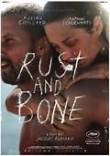After we saw The Place Beyond the Pines last night, we flipped through the cableverse for a couple of minutes before landing on Crazy, Stupid, Love, at the point where Ryan Gosling has Emma Stone in his house and is explaining his “Dirty Dancing deal-closing move.”
I thought about a comment a writer at Esquire had made about George Clooney five or six years ago, that George Clooney would never admit and maybe never realize that his work in Ocean’s Eleven was better than his work in Syriana, and he had the Oscar to prove otherwise anyway.
So I’ll say it: Ryan Gosling will never admit that the supposed “fluff” of Crazy, Stupid, Love is more profound that either of his films with Derek Cianfrance (…Pines and Blue Valentine) or Nicolas Winding Refn (Drive and Only God Forgives), or that his performance in CSL is the most enjoyable work he’s done.
That’s not to say he should stick to romantic comedy, one instinct complements the other–his work in the Refn movies is kind of minimalist and almost zombie-like, but it feels dangerous with all the mayhem around it, and that gives his lighter performances a crackle, just as his lighter performances make the heavier stuff easier to comprehend and associate with–it’s only that I fear that Gosling, like Clooney and Brad Pitt and Mark Wahlberg, tends to take himself and his movies a little too seriously, and tends to gravitate to films by directors who take themselves way too freaking seriously.
Case in point: The Place Beyond the Pines strives for Shakespeare, but in essence is nothing but “soap opera,” according to my wife, and she’s pretty on the nose. Coincidence piles up, what should be almost Greek in dramatic depth feels like Days of Our Lives. It’s worth seeing, if only because it’s gripping moment to moment, even if the viewer is constantly making allowances for the storytelling.
For example, the film shifts from Ryan Gosling’s daredevil motorcyclist/bank robber (yes, I just wrote that) to focus on Bradley Cooper’s young hero-cop/aspiring politician (um…yes). Cooper is in the hospital after a shootout, and The D.A. (Bruce Greenwood) grills him about whether the shooting is justified or not, asking whether the perp pulled first, shot first, etc. It’s interesting, but implausible: Cooper followed an armed perpetrator into a civilian’s house, the perp had a gun and was waving it around. This is not the wild west, the shooting was justified. So why the big question session? To expose the melodramatic gray area of police and criminal? To deepen the morally ambiguity of Cooper’s character?
Fine, but it rings false, as when later Ray Liotta takes Cooper to the house of the perpetrator Cooper’s killed and makes him stand there while he and some corrupt cops search the premises for cash they suspect the guy gave his girlfriend before Cooper killed him. Cooper just got out of the hospital. He still needs a crutch from where he took a bullet. Why take him? Because it’s dramatic. It’s also hogwash and manipulative and unbelievable.
If you’re going to aspire to visceral and naturalistic filmmaking–and there are scenes–long tracking shots and motorcycle chases, as well as some excellent, subtle camerawork in quieter moments (a bedroom tiff with Rose Byrne and Cooper, lit perfectly, comes to mind, though the film is gorgeous consistently)–that show that Cianfrance has the goods–then you have to have your ducks in a row with the naturalistic details, otherwise it’s jarring. …Pines reminds me of a couple of films by James Gray–The Yards and We Own the Night–both of which swing for Great American Filmmaking, but stumble under the weight of the storytelling. Still, it’s a big movie, and I’m interested in other people’s opinions about its ambitions.
Swinging for the fences is never a bad thing.
Case in point, and a good counter example: Rust and Bone.
This movie is ridiculous. It includes a killer whale trainer who gets her legs bitten off, a MMA fighter who helps her, their eventual love story, and a twist at the end that involves a character having to punch a whole in a frozen lake.
I was reminded of the film because both movies use Bon Iver’s “Wolves pt. I and II” in the closing credits.
The reason Rust and Bone works, aside from the fact that Jacques Audiard, who also made The Beat my Heart Skipped and A Prophet, two of the better films of the past decade, is that the events and characters (not to mention performances, specifically the two leads, Marion Cotillard and Matthias Schoenaerts) are invested with such conviction that the result is moving and profound in a manner similar to the films of Douglas Sirk or John Stahl.
While …Pines pretends to be something it’s not–a serious, realistic film–Rust and Bone has the temerity to embrace the twists and turns of melodrama for the profundity it offers. If anything, and for all its brio, what The Place Beyond the Pines suffers from is the slightest bit of trepidation. Dare we go all out? It hedges its bets, and hangs them on a police procedural framework that does it no favors.
Rust and Bone, unrestrained by such jitters, is all the stronger for it’s gonzo leanings.



